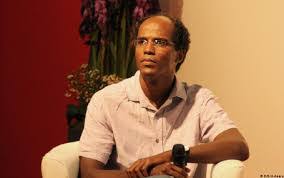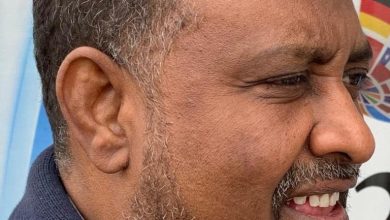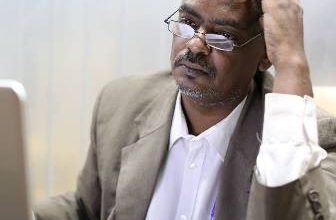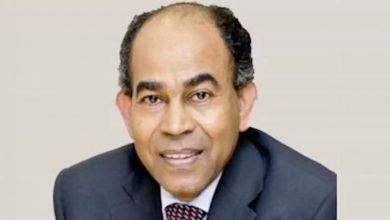The (Taggadum) RSF Covenant…. Something out of Nothing (2-2)

Magdy Al-Gezouli
The covenant signed between the Coordination and Rapid Support included many goals that came in more than one form: stopping the war and treating its devastating effects, achieving peace, and returning to the path of democratic transformation, then “ending the war and making it the last war in Sudan, and completing and deepening the path of the glorious December Revolution by achieving what the people of Sudan deserve.” of democratic civil rule, equal citizenship, justice in the distribution of power and wealth, economic prosperity, solid peace, and sustainable solutions to Sudan’s crises,” then “one professional and national army that expresses all Sudanese according to the criterion of the population census and is subject to the civil authority and understands its duties and tasks in accordance with the constitution” and “ensuring the withdrawal of the security institutions (the armed forces, rapid support, police, and intelligence services) from political and economic activity.”The agreement said that the coordination will present these matters to the leadership of the armed forces to be “the basis for a peaceful solution that ends the war:”
As for the direct promises of the covenant, it is what he said that the Rapid Support Forces are prepared to do for the sake of these goals: “an immediate and unconditional cessation of hostilities through direct negotiations with the armed forces,” “opening safe corridors for the arrival of humanitarian aid,” and “preparing the atmosphere for the return of citizens to their homes.” In the areas affected by the war (Khartoum, Darfur, Kordufan, Gezira, this is done by providing security through the deployment of police forces in civilian areas, operating service and production facilities, and “forming civil administrations with the consent of the people of the areas affected by the war, which undertake the task of ensuring the return of life to normal and providing the necessary needs and the basics for civilians
All of this depends on a large bureaucracy consisting of a number of committees: “The National Committee for the Protection of Civilians is responsible for following up on the return of citizens to their homes, ensuring the operation of markets, hospitals, and service facilities, and determining transit routes for humanitarian aid and ensuring its arrival.” The Joint Committee to stop and end the war, build sustainable peace, and follow up on the implementation of what was agreed upon in the Addis Ababa Declaration. «International National Commission of Inquiry into Who Started the War»; “The Independent National Committee to monitor all violations throughout Sudan and identify those responsible for committing them in a way that ensures they are held accountable.”
As the past experience showed with the “historic opportunity” for both leaders, Dr. Abdullah Hamdouk and Yasser Arman, we had previous experience with the committees entrusted with the matter of an issue, which was obscured until “indoctrination” became a concept and a phrase. Dr. Abdullah Hamdouk, from his position as Prime Minister, established a committee to investigate the events of the dispersal of the General Command sit-in in June 2019, the central incident in the gallant postion of the December Revolution on which the legitimacy of his position was based. This committee did not reach any significant result under his responsibility until Dr. Hamdouk’s government dissolved with the Freedom and Change split and then the coup on October 25, 2021. The committee stopped working, according to its Chair, Nabil Adeeb, the lawyer, in March 2022, in protest against the storming of its headquarters in Khartoum by security forces.
Dr. Abdullah Hamdouk also established, in August 2021, another committee called the National Mechanism to implement his initiative “The National Crisis and Transition Issues – The Way Forward,” which he had announced in June 2021, a committee whose godfather was Yasser Arman, who entered the ruling office in July 2021 as a political advisor, to the Prime Minister. Yasser Arman, the presidential candidate who withdrew in 2010, said at the time that he refused to hold the positions of Minister of Foreign Affairs and Information and his appointment came as part of an understanding between him and the Prime Minister. The formation of the mechanism (71 members) angered the armed movements that were in the Freedom and Change Alliance and joined the government through the bridge of the peace agreement in October 2020.
The armed movements suspended their membership in the Central Council of the Forces of Freedom and Change in June 2021. The initiative of Dr. Abdullah Hamdouk came from the position of the Prime Minister to repair the fissure, but it increased further until the whole episode craked down and fell apart in October 2021 into two wings, the Central Council wing with its political declaration in September 2022, the National Charter Wing (later the Democratic Bloc) issued another charter on October 1, 2021.
Dr. Hamdouk, a prime minister, broke his promise to achieve justice for those killed in the dispersal of the sit-in, and the two, Abdullah Hamdouk and Yasser Arman, failed to ensure the integrity of the political alliance that brought them to the highest positions of executive responsibility under conditions of peace, until it broke up between them and they turned against each other, blaming each other. What is the significance that a committee can carry out the tasks stipulated in the covenant between the coordination and the Rapid Support Commander, and with what might andpower? Naturally, everyone who had the Rapid Support Forces robbed him of his home, looted his money, and expelled him from his homeland wonders how to get his home back, at least?
Should he return to his home in the areas under the control of the Rapid Support Forces, knock on the door, and evict the “forceful” occupation, or should he leave of his own accord, out of love and dignity, if he finds the home standing? Or does he submit a request to the “civilian” administrations formed by the Rapid Support itself in the areas under its control?
Or does he plead with the supporting national figures to stop the war, who must follow “the procedures for the return of civilians to their homes” and mediate with the leaders of the Rapid Support, or does he wait until the investigations of the National Committee to monitor “all violations” are completed and hope for repair? How does all this fit across a geography that extends from Khartoum, which has nine million people at the time of the outbreak of war in April 2019, to El Geneina, whose people’s bodies will not be able to return home, even if the committees of Hamdouk and Dagalo said so? The reasonable person will not stop judging that all of the above are “empty rhetoric,” not even reaching the level of ephemeral lightning.
So what is the promise of the coordination and the commander of the Rapid Support Forces? You do not find the meaning of the covenant that the two parties signed in its text, and therefore perhaps he who drafted it did not care about the correct wording, as its preamble, issues, and mechanisms are mixed over one another, but he did well to obscure everything related to the responsibility of the Rapid Support Commander for what happened to his forces, and to “indulge” this responsibility and waste it. He released hope, hope for an end to pain, hope for peace the Coordination charter and the Rapid Support Forces commander, then, wove a delicate fabric between the trauma of war and the hope of getting rid of it and “normalization” with the Rapid Support, its crimes, its gains, its achievements from any angle you looked at and from any location. In the portrayal of the Coordination era and the Rapid Support Forces commander, the truth is a secondary summary of the “narrative.” “And the “image,” but it has no objective consistency, and it cannot be recognized, even if it appears in the middle of the day as a bright sun, except through the rituals of a special, independent international national committee of national figures supporting an end to the war…etc.
Dr. Naomi Klein, in her book “The Shock Doctrine 2007” (2007), presented the effectiveness of shocking violence in taming societies as they are, or even liquidating their known composition, to accept what they cannot accept under normal circumstances. She listed within that natural and man-made disasters, including war as well as invasion. The American forces invaded Iraq in 2003, which ended, among other goals, with the liquidation of the Iraqi army and the liquidation of public property under the administration of the Iraqi state and its wholesale transfer to the ownership of the new elite, the agent of the United States of America.
Klein said about the Iraqi experience that it was the broadest and most comprehensive application of the shock doctrine, and she detailed the long and continuing rebellion to this day in various forms against the opposing regime in Iraq. Therefore, perhaps, it is permissible for the observer to look into the connection between the Coordination era and the Rapid Support Commander on January 3, 2024 and to discuss the economic program of the Coordination Group in another “workshop” held in Nairobi, December 1, 2023 under the banner of Chatham House, the Royal (British) Institute of International Relations, and Systematic Sabotage of the agricultural infrastructure in the irrigated Gezira project at the hands of the troops of the Rapid Support Commander.



